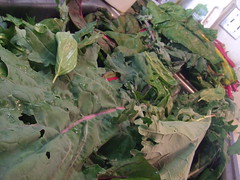Tuesday, July 28, 2009
Song number two
"Song number one is not a fuck you song" --Fugazi
But if you are going to sing a fuck you song, this is the one.
But if you are going to sing a fuck you song, this is the one.
Friday, July 24, 2009
Thursday, July 23, 2009
One of the largest ___ graveyard
One of the largest ship graveyards: the bay of Nouadhibou
The whole site is full of pictures of abandoned industry. Its amazing.
Via Emily B on facebook
Update: OMG check out the pictures of the boats abandoned in the retreat of the Aral Sea.
The whole site is full of pictures of abandoned industry. Its amazing.
Via Emily B on facebook
Update: OMG check out the pictures of the boats abandoned in the retreat of the Aral Sea.
Wednesday, July 22, 2009
For the sake of contrast:
A couple of years ago, my neighbor locked herself out and figured she could save the locksmith charge if she could get to an unlocked door on her second floor porch. A Cambridge police officer happened by and helped us carry an extension ladder across the street from my garage. He even held the ladder steady while my nimble neighbor ascended to the porch. The police officer never asked two laughing Caucasian women to prove we were not burglars.
The rest of the article, by someone who has dealt with police misconduct cases, discusses in detail about what was screwy in the way Sgt. James Crowley treated Skip Gates
Friday, July 17, 2009
Wednesday, July 15, 2009
Tuesday, July 14, 2009
Skeptoid on Locally Grown Produce
Brian Dunning, the skeptoid, has a post up arguing that locally produced food is not actually better for the environment. His central claim is that getting your food locally doesn't actually reduce the amount of fuel used in shipping, because systems of direct delivery are less efficient than systems with distribution centers. This sounds like a good argument, but it contains a subtle fallacy. Basically, when he shifts from talking about locally vs. internationally produced to talking about direct delivery vs. distribution centers, he changes the topic. Granted, if you look at two complex distribution systems of the same size, the one with distribution centers is going to be more efficient than the one that relies only on direct delivery. But what about a local system that uses distribution centers compared too a global system that uses distribution centers? Dunning assumes that once a system starts using distribution centers, it no longer counts as local. But his own example is of a local system that switched to distribution centers because it was more efficient. The system didn't start importing beef from New Zealand, but Dunning wants us to believe that because one local farmers group switched from direct delivery to distribution centers that it is more efficient to ship food globally. This just doesn't follow.
There are a lot of problems with locally produced food. Peter Singer has a good argument that supporting agriculture in the developing world is just as important as reducing carbon footprint. He also points out that transporting cargo by ship is much much more efficient than transporting by truck. But broad, almost data free, arguments like Dunning's just don't cut it.
In general, calculations of environmental impact are incredibly complex, and the rhetoric of skepticism really doesn't work here. Skeptics and debunkers always frame debates as cases of reason vs. superstition. The tone is "I'm rational, and you're not." But environmental debates are generally not cases of reason vs superstition, but conflicting ways of calculating costs and assessing risks. If one person uses a model that only takes GDP to be a basic good, while another person tries to include, say, the rights and interests of non-human animals, neither side is being irrational. They are using different frame works with different assumptions about value.
There are a lot of problems with locally produced food. Peter Singer has a good argument that supporting agriculture in the developing world is just as important as reducing carbon footprint. He also points out that transporting cargo by ship is much much more efficient than transporting by truck. But broad, almost data free, arguments like Dunning's just don't cut it.
In general, calculations of environmental impact are incredibly complex, and the rhetoric of skepticism really doesn't work here. Skeptics and debunkers always frame debates as cases of reason vs. superstition. The tone is "I'm rational, and you're not." But environmental debates are generally not cases of reason vs superstition, but conflicting ways of calculating costs and assessing risks. If one person uses a model that only takes GDP to be a basic good, while another person tries to include, say, the rights and interests of non-human animals, neither side is being irrational. They are using different frame works with different assumptions about value.
Good fences make good neighbors!
Which is why I'm building a fence across the middle of my neighbors' yard and putting up a security checkpoint in their living room!
The ad. The explanation.
The ad. The explanation.
Monday, July 13, 2009
Ladies and Gentlemen, Kale, Chard, and Basil

Ladies and Gentlemen, Kale, Chard, and Basil
Originally uploaded by rob helpychalk.
A pile of leaves from our garden.
Monday, July 06, 2009
Father's Day 2009

Father's Day 2009
Originally uploaded by rob helpychalk.
"I colored a band for you because I know you like bands"
Subscribe to:
Comments (Atom)


